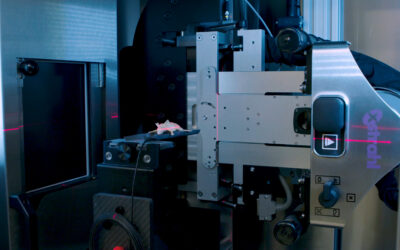The DNA damage response (DDR) is an essential signaling pathway that detects DNA lesions, which constantly occur upon either endogenous or exogenous assaults, and maintains genetic integrity. An infection by an invading pathogen is one such assault, but how bacteria impact the cellular DDR is poorly documented. Here, we report that infection with Listeria monocytogenes induces host DNA breaks. Strikingly, the signature response to these breaks is only moderately activated. We uncover the role of the listerial toxin listeriolysin O (LLO) in blocking the signaling response to DNA breaks through degradation of the sensor Mre11. Knocking out or inactivating proteins involved in the DDR promotes bacterial replication showing the importance of this mechanism for the control of infection. Together, our data highlight that bacterial dampening of the DDR is critical for a successful listerial infection.
Ascel Samba-Louaka, Jorge M Pereira, Marie-Anne Nahori, Veronique Villiers, Ludovic Deriano, Mélanie A Hamon and Pascale Cossart
Download Paper
SPOTLIGHT: Behind the Beam: Tips, Tricks, and Translational Research from the Karolinska Institutet X-ray Irradiation Core Facility
Access the highly anticipated Xstrahl SPOTLIGHT Session, "Behind the Beam: Tips, Tricks, and Translational Research from the Karolinska Institutet X-ray Irradiation Core Facility," on demand now. This essential recording is a must-watch for radiation researchers and...







